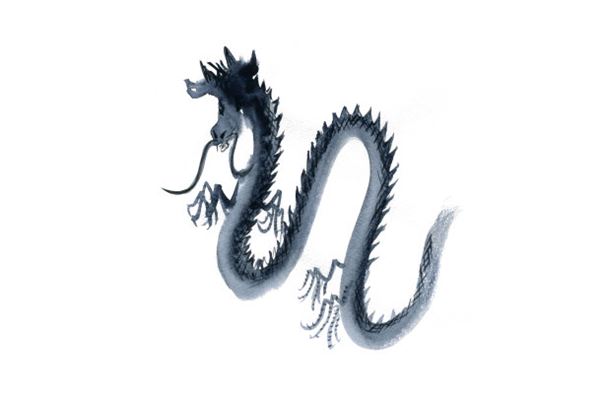Dreams and subconscious
Dreams and subconscious
What is the subconscious? In the process of psychoanalysis of patients, researchers have found that psychosis is related to repressed desires or ideas. If someone has a desire or painful experience deep in the heart, which is always repressed in the underside and cannot be realized or vented, it will be hidden. When subjected to a particular stimulus, these repressed desires or pain will be expressed in the form of abnormal activity, resulting in psychosis. This kind of repressed in the depths of the mind, usually unconscious mental activity is called subconscious.
But the contents of the subconscious mind are resisted when they try to enter the conscious mind. The subconscious mind constitutes the largest and most powerful part of everyone's body. It is the source of mental activity, but we do not know it exists. This decisive part of human psychology has no sense of time, place, or right and wrong, and is as ignorant as a baby of laws, ethics, and taboos
It only knows what it needs and will not rest until it gets it. This impulse creates a fixed need for 'pursuit of satisfaction' deep in everyone's psyche, which is the 'hedonic principle.'
The subconscious holds general memories of our childhood, which we think we have forgotten, but which we still retain. It also includes our own perceived secrets, resentments, loves, and certain strong and primal passions and desires.
Since most of these feelings are unpleasant, they are suppressed out of the realm of consciousness and buried in the subconscious. Therefore, the average person does not know that they can have these immoral ideas and desires in them. When we are awake, the subconscious influences our daily life greatly. It affects the way we think, feel and act. At night, it reappears in the dreams we have.
According to psychoanalytic psychological understanding, the subconscious part of the mind predominates over the personality of the average person. The unseen parts of our subconscious mind powerfully manipulate our thoughts, feelings, and behaviors. Although these functions appear to come from the conscious mind, the subconscious mind does play a decisive role in the dark.
Certain desires stimulated by the principle of hedonism are often monitored by another opposing force. This opposite force is called
The 'reality principle'. Every man possesses this contrary power, which restrains the lawless demands of the unconscious; And try to adapt them to the real world.
Suppression psychology is commonly used as an important method of self-defense in personal life, which prevents people from dealing with deep feelings or ideas that come from childhood and are too painful to bear. For example, when someone has the urge to steal, but the conscious mind is discernable, it cannot accept the idea, so it covers up these impulses and gradually goes into the subconscious mind. These latent ideas, though hidden from conscious cognition, are still powerfully active in the lower layers of the mind, where our consciousness cannot control them, but often dreams. Dreaming that he was stealing something when someone found, he turned and ran, but no matter what, he always can't run. The pursuer was getting closer and closer, and when he was about to catch him, he suddenly woke up.
By suppressing some forbidden feeling or desire into the subconscious mind, they are not always coming back, they are constantly trying to force themselves into consciousness. However, because of the role of 'monitoring,' the feeling of suppression must be disguised in order to have any hope of appearing in consciousness. It manifests itself in certain symptoms. Such symptoms are dreams, verbal errors, feelings of depression, or the body
Discomfort and so on.
Things in the subconscious can also appear in the conscious through a way called 'sublimation'. Strong subconscious desires, which may be immoral and violate ethics, use sublimation to appear in more acceptable forms in everyday life.
The suppressed expression of the subconscious desire will be fulfilled through the way of 'translocation'. For example, a man is so sick of his current job that he slowly starts to get a headache. A middle school student usually do very well, but when he goes to the examination room, he often diarrhea, so that the test score is not high, which is the result of the suppressed feeling transforming its energy and acting on the body and finally acting as a disease.
If a strong subconscious is eager to be revealed and forbidden, another force of psychology will come into conflict with it. The second force is a sense of responsibility for the demands of society. It knows that society will take a harsh view of the unconscious in its original form. A form of camouflage emerges, known as a self-defense mechanism. They can help a person escape the painful facts in front of him and search for a better future in his inner world. The source of this self-defense mechanism is primarily subconscious, which may occur in dreams or in conscious thoughts, feelings, and behaviors. The self-defense mechanism is not consciously active. It's completely
Governed by the subconscious mind. For example, when a man is a child, he hates his mother, and he knows that this is not true, and then this feeling changes into other forms in his consciousness. It may become a hatred of female celebrities, a hatred of prostitutes, a dislike of family (settling down), or a careless life, never caring about home. In this way, he shifted his original hatred to a fact that was acceptable to society and himself.
What does the subconscious have to do with dreams?
The relationship between the subconscious mind and dreams is like the relationship between desire and pursuit, because there is desire, human beings have pursuit, and it is also because we have the subconscious mind, we have dreams.
No matter how bizarre and wonderful our dreams are, they cannot be separated from the subconscious mind. Our dreams of all kinds are composed, directed and acted out by the subconscious mind as long plays, short plays, tragedies or comedies that take place under the night. That is, whether it is an ordinary day night dream, or a pillow Huangliang spring and autumn dream, there is no subconscious shadow. Someone once said of the subconscious mind that it is the material of dreams, the soul of dreams, and the condition for the occurrence of dreams.
But we often neglect the subconscious mind, which is the soul of dreams. Because, normally, in my sleep, I
We are not struggling like ants on a hot pot because of an instinctive drive, nor are we communicating with some smarter, more universal force.
During sleep, we sometimes enter not only the individual subconscious state, but also the more general state of awareness, which is called the collective subconscious.
The collective unconscious is not only omnipresent and unchangeable, but it itself has exactly the same nature or spirit. This is, of course, only a hypothesis. We are driven to it by the unique nature of the experiential material, the great similarity of the mental workings of all individuals, which must be in order to conform equally to the universal and objective laws, as the instinct itself appears in the individual, which is only a partial manifestation of the general instinctive nature of all human beings.
Subconscious is suppressed and excluded from the field of consciousness, consciousness can not be involved in the field, human psychological process is divided into three layers: the upper layer is the consciousness layer, the middle layer is the pre-consciousness layer, the bottom layer is the subconscious layer. Usually, what people perceive is the level of consciousness, and when they do not think about an idea, it can be fleeting, and the lost idea can return to the level of consciousness when needed. This level of thinking that can be recalled by conscious memory is called pre-consciousness. The relationship between the conscious and the subconscious is like a floating
The iceberg on the sea, 1/9 of the surface of the water is consciousness, the underwater 8/9 is subconscious, subconscious layer is far larger than the conscious layer, it always breaks through the obstruction to the conscious layer, and all the other people's consciousness and the behavior of the people controlled by the consciousness are determined by the strong desire of the subconscious. The conscious and pre-conscious mind will temporarily stop working during sleep or a certain period of time, while the subconscious mind does not rest 24 hours a day. The potential for it to exploit is enormous.
The subconscious mind is the soul of dreams, and dreams are the active medium of the subconscious mind. Aristotle said of dreams: 'A dream is a thought that persists into sleep.'
The source of dreams is actually the subconscious mind. Dreams arise only when the conscious wish is reinforced by a similar wish in the subconscious. For the desires of the unconscious are always active, and whenever the opportunity arises, they unite with the desires of the conscious, and transfer their stronger forces to the weaker ones. So it appears that the conscious desire alone produces the dream, and we can see the traces of the unconscious in some unobtrusible features of dream formation. The unconscious desire to never perish is like the myth of the Titans: even after many years, these people, buried under the earth by the great mountains of the victorious God, still occasionally cause the earth to tremble with the spasms of their mighty limbs.
Generally speaking, when sleeping, people who can temporarily shut down the potential of waking thoughts can sleep well. But unresolved problems, headaches, too strong an impression, etc. can keep the mind active until sleep, and also control the mental activity we call the preconscious system. The impulse to dream continuously can be divided into the following categories:
Those who are excluded and suppressed during the day.
The ones we can't fully deal with because of our lack of wisdom.
Due to some accidental reasons, it is not possible to reach a conclusion during the day.
Those inconsequential daytime impressions. Not dealt with because it was unimportant.
External subconscious desires are often powerful because of the pre-conscious action during the day.
In the state of sleep, pre-conscious activities do not follow the normal path to the conscious world. At night, if our thoughts follow the normal path to consciousness, then we are certainly not asleep. The changes in preconsciousness brought about by the sleep state are the mental characteristics of sleep caused by the changes in energy during sleep of this particular system (which also controls the ability to act)
Paralyzed in his sleep. There is no cause for the preconscious excitement except for the subsequent changes in the subconscious. The excitement of the pre-consciousness is only strengthened by the subconscious mind, and it goes hand in hand with the subconscious mind through the circuitous path, so that the dream is produced.
 Dream of each other's love words
Dream of each other's love words  Black Dragon
Black Dragon